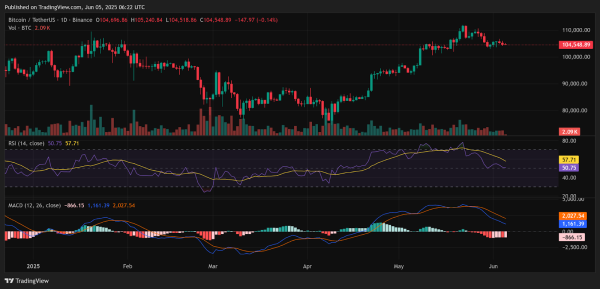Synopsis
Bitcoin (BTC) plunged to multi-month lows on Monday, falling over 14% in 24 hours amid US recession fears and disappointing economic data. This drop reduced Bitcoin’s market value by around $220 billion and led to a 15.9% decline in the global crypto market cap, now at $1.81 trillion.
Bitcoin (BTC), the world’s largest cryptocurrency by market value, plunged to multi-month lows on Monday as concerns over a potential US recession, fueled by disappointing economic data, spurred a rush to safe-haven assets.
As of 12:57 pm IST, Bitcoin was trading 13.3% lower at $52,586, having briefly dropped to $49,121 in early Asian trading hours.
“Bitcoin has plummeted to around $53,000, marking a significant decline, while Ether has also turned negative for 2024, reflecting broader concerns in the crypto sector. This downturn is driven by regulatory pressures, adverse macroeconomic factors like weak US job data, and the Japanese stock market crash. Investors, fearing a prolonged bearish trend, are reacting with increased volatility and panic,” said CoinSwitch Markets Desk.
Crypto Tracker![]() TOP COIN SETSBTC 50 :: ETH 50-26.06% BuyWeb3 Tracker-34.06% BuyNFT & Metaverse Tracker-35.22% BuyDeFi Tracker-36.14% BuyAI Tracker-38.75% BuyTOP COINS (₹) Tether84 (0.2%)BuyBitcoin4,431,108 (-12.57%)BuySolana10,128 (-14.91%)BuyBNB37,089 (-15.71%)BuyEthereum194,584 (-20.01%)BuyRecession fears were intensified by data released post-market on Friday, revealing that US job growth in July was significantly weaker than expected. The Labor Department reported an increase of just 1,14,000 nonfarm payrolls, well below the 1,75,000 forecast and far short of the 2,00,000 needed to keep up with population growth. The unemployment rate also rose to 4.3%, nearing a three-year high.
TOP COIN SETSBTC 50 :: ETH 50-26.06% BuyWeb3 Tracker-34.06% BuyNFT & Metaverse Tracker-35.22% BuyDeFi Tracker-36.14% BuyAI Tracker-38.75% BuyTOP COINS (₹) Tether84 (0.2%)BuyBitcoin4,431,108 (-12.57%)BuySolana10,128 (-14.91%)BuyBNB37,089 (-15.71%)BuyEthereum194,584 (-20.01%)BuyRecession fears were intensified by data released post-market on Friday, revealing that US job growth in July was significantly weaker than expected. The Labor Department reported an increase of just 1,14,000 nonfarm payrolls, well below the 1,75,000 forecast and far short of the 2,00,000 needed to keep up with population growth. The unemployment rate also rose to 4.3%, nearing a three-year high.
Did you Know?
The world of cryptocurrencies is very dynamic. Prices can go up or down in a matter of seconds. Thus, having reliable answers to such questions is crucial for investors.
View Details »The sell-off was further exacerbated by the Bank of Japan’s decision to raise interest rates to 0.25% and reduce bond purchases, leading to an appreciation of the yen and forcing investors to unwind their positions. This move has contributed to a global market sell-off, impacting US tech stocks and broader global markets.
Geopolitical tensions also weighed on market sentiment, with concerns growing over potential attacks on Israel from Iran and its regional allies.
(Disclaimer: Recommendations, suggestions, views and opinions given by the experts are their own. These do not represent the views of The Economic Times)


